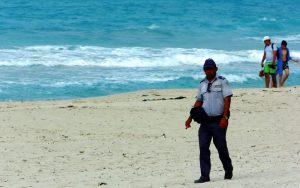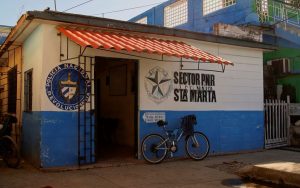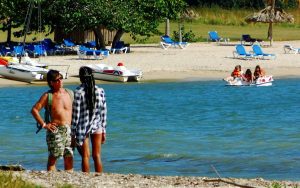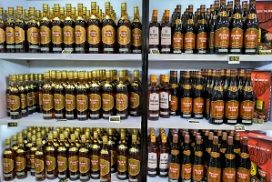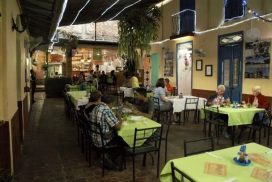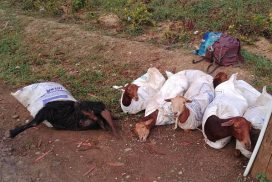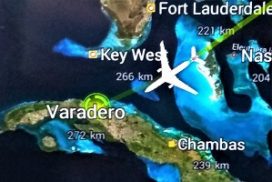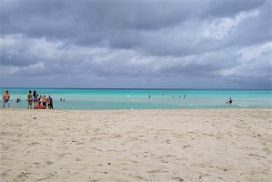Safety & Crime
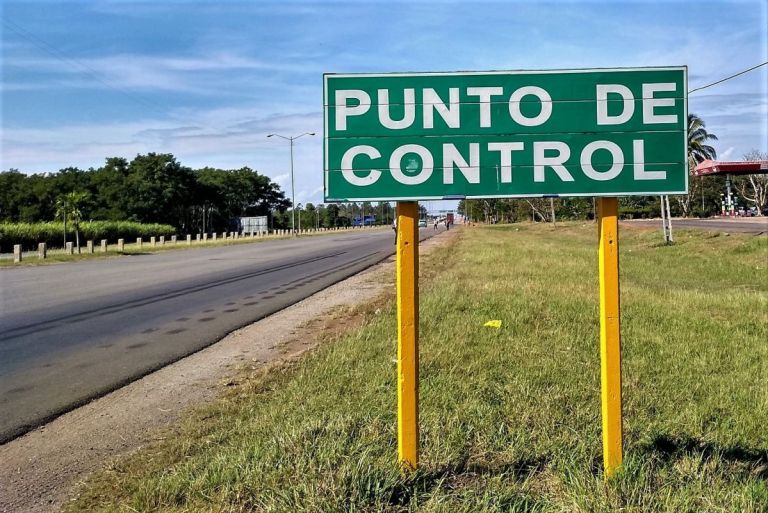
Updated: Dec 19, 2022
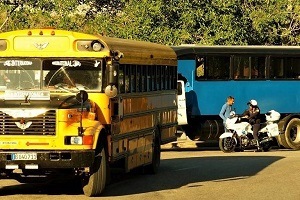
Cuba is known for being one of the safest travel destinations around the world. While many Central and South American countries are quite unsafe, in Cuba tourists can move without any hesitation and restrictions. It is also true that in Cuba opportunity creates thieves, and minor scams are quite common. What to consider when it comes to security? How to protect yourself? Keep reading to learn the details.
If you are concerned about safety during your Cuba vacations, you can feel relieved. The country is practically free from organized crime. In addition, the often fatal spiral of drugs and violence, which unfortunately is a sad part of everyday life in other countries in the region, isn’t an issue in Cuba.
Serious crimes, like robberies, are practically non-existent. Such is the case that the robbery of a gas station in Havana made headlines across the country. An expression of the level of security is, for example, that quite a few Cuban police officers do not carry a gun on a daily basis.
Many visitors from all over the world are surprised by the level of security. Most travelers consider their entire stay completely safe. Due to the security situation, Cuba is particularly recommended for trips with children or individual travelers.
The probability of something being stolen or robbed on the streets in Europe or the USA is certainly higher than in Cuba. The state ensures law and order in the country, foreigners can move freely along the island at all times of the day and night without hesitation. This also applies to the central districts of Havana, where travelers can also move around without any safety concerns.
Although the general state of safety, Cuba is not completely out of crime. Where supposedly wealthy foreigners meet poorer people, the temptation is bigger and it can lead to a crime. In very rare individual cases - especially at night and in Havana - may occur attempts of snatching objects from travelers.
However, other serious crimes hardly ever happen. In Cuba, travelers are much more likely to be victims of theft or fraud. Yet, with the right behavior the risk of becoming a victim of such a crime can be significantly reduced.
­
Opportunity creates thieves
Like everywhere else, in the socialist Cuba opportunity creates thieves. Travelers should avoid false incentives and take general precautions. As with all trips, it is better not to show valuables and keep expensive jewelry at home. It is also not recommended to leave your most valuable possessions in your hotel room, car or on the beach. Also you shouldn’t store in backpacks, properties such as cameras or laptops. When traveling by bus or plane, it is better to carry belongings in hand luggage, especially on the return flight to your country.
It’s not advisable to travel with large amounts of cash. If you do not use a credit card (which is highly recommended), you should distribute the money in several places on your body - not only in your luggage.
If the accommodation has a safe box, you should keep your passports and important personal belongings there. In general, it is more likely to lose something in a hotel than in a Casa particular. The owners of the private accommodation are extremely concerned about the safety of their guests, because if there’s a problem, their license may be withdrawn.
Especially on crowded beaches you should take care of your things and not leave them lying around carelessly.
It’s not common that a vehicle is broken into during the day. But if you leave baggage visible in the car, then it could happen. In principle, rental cars should only be parked in secure parking spaces. This is essential, especially overnight, because parts of the automobile can be stolen without surveillance. In rare cases, tourists had their tires stolen from their car during the night.
You should make photocopies from the important documents (passport & driver's license) to move around and keep the originals safe. Tourists must be able to identify themselves at all times, but it’s not usual that you get checked without a special reason. If you do come to an inspection, usually a copy of the identification is enough.
Before starting the journey, check the website of the Federal Foreign Office for the latest information on the current security situation in Cuba.
­
Minor tourist scams
Some Cubans have developed very creative methods of stealing money out of the visitors vacation budget. In touristic places there are smugglers (so-called jineteros) who, in the hope of receiving a small commission, offer overnight accommodation, taxis or other activities. In some cases, attempts are made to convince travelers that their already booked accommodation is not valid. If you fall for this scam, you will be taken to another accommodation and the thug will get a commission.
Travelers are frequently approached in front of bus stations and receive - not always false - information that there are no more available seats on the buses. Naive vacationers are then charged with expensive taxi rides.
Another trickery is with the fake quality cigars. On the streets - especially in Havana and Pinar del Rio - there are some people trying to sell cigars to tourists. The boxes and stamps of quality may seem new and real, but it’s basically not the case. Buying larger quantities of these cigars, you will not only lose money, but can also have problems with the Cuban customs when leaving the country.
The cigars can be acceptable, but it’s also possible that they are made from rolled banana leaves. If you do not have sufficient expertise to assess the quality, it is better to buy them in an official - state - store.
Also in a Casa Particular is common to receive the offer of this fake product. In many cases, the owners are not even aware that it is forged. The alleged information about the origin of the goods - from the friend employee directly from the factory - is often false.
A popular scam is the bar or party trick. Here an attempt is made to bring foreigners into a pub to listen to music there. Before you know it, expensive drinks are ordered at your account. If someone comes to sell you the unique opportunity to participate in a very special event, then you know what to expect with great probability. You should also be particularly careful with beverages. In rare cases, vacationers were destabilized and robbed with knockout drops.
Sometimes, under the argument that sick family members urgently need medication, helpful tourists are persuaded to buy supposedly expensive medication. Most drugs are sold in Cuban pesos and are usually cheap. Medicines at foreign exchange prices (USD) are only available in international pharmacies.
Especially the less creative speeches like: "First time in Cuba?" or "Happy Holliday, where are you from?" already indicate that you are dealing with a Jinetero. Often they ask first about the time, the aim of making contact is always to involve the foreigner in a conversation. This is followed by the allusion of a special salsa party, the cigars, the nice cousin or the sick family members...
Generally, if someone spokes to you in the street, the alarm bells should already ring. Certainly there are many people who are simply interested in an exchange with foreigners, but experience proves that most of the speeches are aimed at making a profit in a more or less creative way.
­
Excessive prices and wrong change
The most common way Cubans get money out of the tourists pockets, is trickery with paying and changing money. In shops they charge excessive prices or give wrong change. To protect yourself, it is generally advisable to only buy marked goods. If the prices are not reasonable and a cashier starts to manually enter something into the cash register in the supermarket, you already have the right to be suspicious.
Another warning sign is that you will not receive a receipt. In addition, always estimate the costs and check whether the requested price is plausible. When it comes to getting change, it is important to make sure that the amount is correct. If you complain about such a "mistake", you usually get your money back without any problems.
When dining you should be aware, Cuban restaurants sometimes have two menus. Foreigners get one with overpriced offers. You can find which prices you can expect for a meal in the corresponding article. In places with many tourists, the risk of falling victim to this creative scam is particularly high. This also applies in hotels or at the airport.
Stay calm
With all the trickery, you shouldn't forget that a considerable proportion of Cubans are relatively poor. Although the Cuban state provides health, education and basic needs, the incomes are barely enough to live on, so that small frauds to finance a living are almost inevitable. If you don't steal somewhere, you can hardly make ends meet. The trickery is thus systemic in nature and is entirely in the socialist tradition.
So it is important to leave a tip when you are treated properly, like many wealthier Cubans do. If you leave a few cents tip, it shouldn't hurt your travel budget too much, but it helps people and also promotes honesty.
Ultimately, you not only support the people, but also socialism. Where and how many tips are usually given can be found in the article about money and currency.
­
Beggars in Cuba
In Cuba you don't have to worry about being begged for money often or intrusively. It only happens in rare individual cases. Often the beggars are alcoholic.
People who have very little financial means can ask for a small gift, but that’s not common. They are generally older people without families, who are living in extreme poverty. Very few of these people beg, mostly they search garbage cans for recycling purposes.
You can help with just a few cents. Solidarity for people in need is also common among Cubans; they are frequently helped at least with free food. If you want to support Cuba and its people, it is best to bring gifts or donations from home.
Children in Cuba are prohibited from begging. The ban should not be taken too seriously. Is rare, but no child will have problems asking an adult for a "peso". If you give away a few cents the child is happy and buys an ice cream or other sweet. But there are no children in Cuba who are systematically trained for begging.
­
Prostitution
As in every country, there is prostitution in Cuba. In contrast to other states in the Caribbean, this is illegal there. Foreigners - men traveling alone - will frequently be encountered with prostitution. Women offer their company near larger hotels and in nightclubs.
A soft form of prostitution is tolerated and is also common among Cubans. It is clear that quite a few foreign retirees have long-term partnerships with Cuban women. In exchange, the novias (girlfriends) receive financial or material benefits that make the often complicated local life a little more bearable.
When foreigners are with colored companions several decades younger - it must be expected that the police will question the woman and, in rare cases, arrest her. If it is repeated, the women can face jail sentences.
­
Don't become a criminal yourself
Basically, tourists are mainly left in peace by the police, but don’t let this indulgence fool you. It is essential to stay away from drugs of any kind. Even the consumption of soft drugs - such as marijuana - is punishable with awful penalties. At airports, luggage is checked using drug detection dogs, among other techniques. The same goes to alcohol, an absolute taboo in road traffic. For minor violations, parking tickets are to be expected. Take care and look out! You certainly don't want to end up in a Cuban prison.
­
How to behave in case of emergency
In case of emergency, Cuban police are first informed. They are always trying to make tourists feel as safe as possible in their trips. It can be assumed that the police are trustworthy.
Many Cuban police officers turn a blind eye to minor disobedience, but they are not tolerant when it comes to theft and serious violations. Anyone in need should not doubt to contact them. It also applies if you feel harassed in any way, that is forbidden to tourists in Cuba. In most cases, threatening to call the police can help.
In the event of serious incidents, you should also contact the consular representation of your home country as a precaution.
Embassy of Canada
518 (esq. 7ma) Calle 30, La Habana, Kuba
Tel: (+53) 7 2042516
British Embassy
Calle 34 no. 702 esq. 7ma
Miramar, La Habana.
Tel: (+53) 7 214 2200
